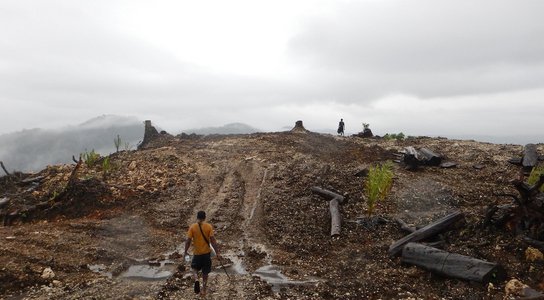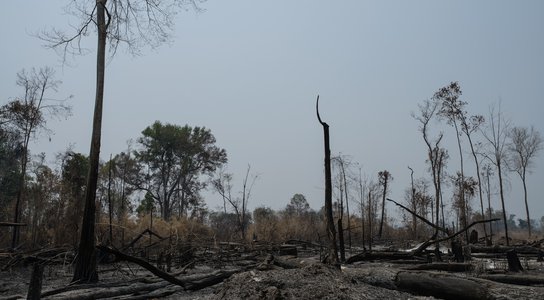Revelations that European’s money – and EU-based investors – play a key role in funding projects linked to human rights abuses, land grabs and large-scale environmental destruction, are unfortunately far too common place.
With the political momentum building to make the financial sector more accountable for today’s vast sustainability challenges - be it climate change or threats to local communities - the EU, investors and companies have a historic opportunity to act to close these loopholes.
Read our full briefing 'Indecent Exposure' here [PDF]
Read our briefing on 'EU Investor due diligence' here [PDF]
Our new briefing paper draws on previous Global Witness exposés to highlight the devastating impact of harms caused by predatory natural resource projects on communities around the world and the role that some EU-based investors have played in supporting them.
This includes case studies involving European investments in:
- Oil exploration in Africa’s oldest national park
- A mining project in India which sparked violent protests
- Deforestation and land grabbing in Asia and Africa
An historic opportunity for the European Union
The EU’s landmark Action Plan on
Financing Sustainable Growth claims to ‘reorient private capital to more
sustainable investments’ and mainstream sustainability across investors’ risk
management. This is a major step forward.
But while strong on rhetoric, the Action Plan lacks the substance to truly
tackle the social and environmental harm caused by the financial sector.
The Commission’s legislative proposals released in May lacked robust measures to stop for example, EU investors playing a role in bankrolling projects linked to violent attacks on people peacefully protesting against damaging environmental projects on indigenous land.
This briefing makes the argument for the EU’s plan to make the financial sector more sustainable to include mandatory regulations for EU investors, and their overseas subsidiaries, to carry out to due diligence in order to identify, mitigate and publicly report on the environmental, social and governance risks in their investment chains.
EU investors can also play a powerful role in improving the
overseas operations of the companies they invest in by insisting on high ESG
standards, but at present this is at best inconsistently applied.
Read our full recommendations on the
EU’s Action Plan on Financing Sustainable Growth, Due Diligence and DSR
regulation in our briefing here.
An indicative timeline of EU Parliamentary activity on sustainable finance can be seen below
- 23 May 2018: Legislative proposal published – Disclosure on
Sustainability Risks Regulation
- 20 July 2018: Council Working Party first discussion on
SusFin package
- 4 August 2018: Paul Tang published his draft report
- 3 September 2018: First ECON debate on Tang’s report
- 12 September 2018: Deadline ECON amendments
- 25 September and 5 October 2018: Council Working
Party discussions on SusFin package
- 18 October 2018: Second ECON debate
- 5 November 2018: ECON vote. Followed by potential trialogues with the Council
Contacts
-
Rachel Owens
Head of EU Office and EU Advocacy / Directrice du Bureau (UE). Campaign Lead on Corporate Accountability
You might also like
-
Blog post 8 facts about sustainable finance – and how it affects you
This is what you need to know about sustainable finance in the EU
-
Press release Regulating risk: Why a sustainable Europe begins with clean investments.
A sustainable Europe begins with clean investments.
-
Briefing EU investor due diligence
It is crucial to ensure finance works for people and planet